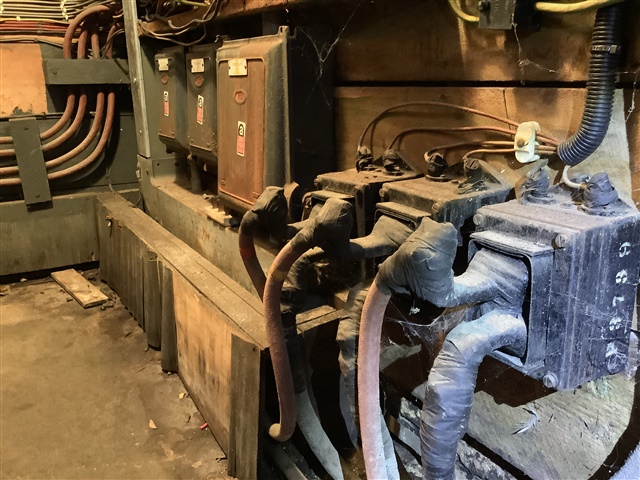I was just out of nappies when this connection was made in 1960. One of the lads flagged it on an EICR as a mild matter of concern, probably because I have made it clear that taped up connections that we often see at luminaires need to be considered as not properly enclosed. The client duly contacted the DNO. They are happy that it remains safe, although didn’t put it in writing. It probably is, and to be honest, apart from reading the meter, I don’t think anyone else has been in the intake since JFK bumped Richard Nixon out of office.

